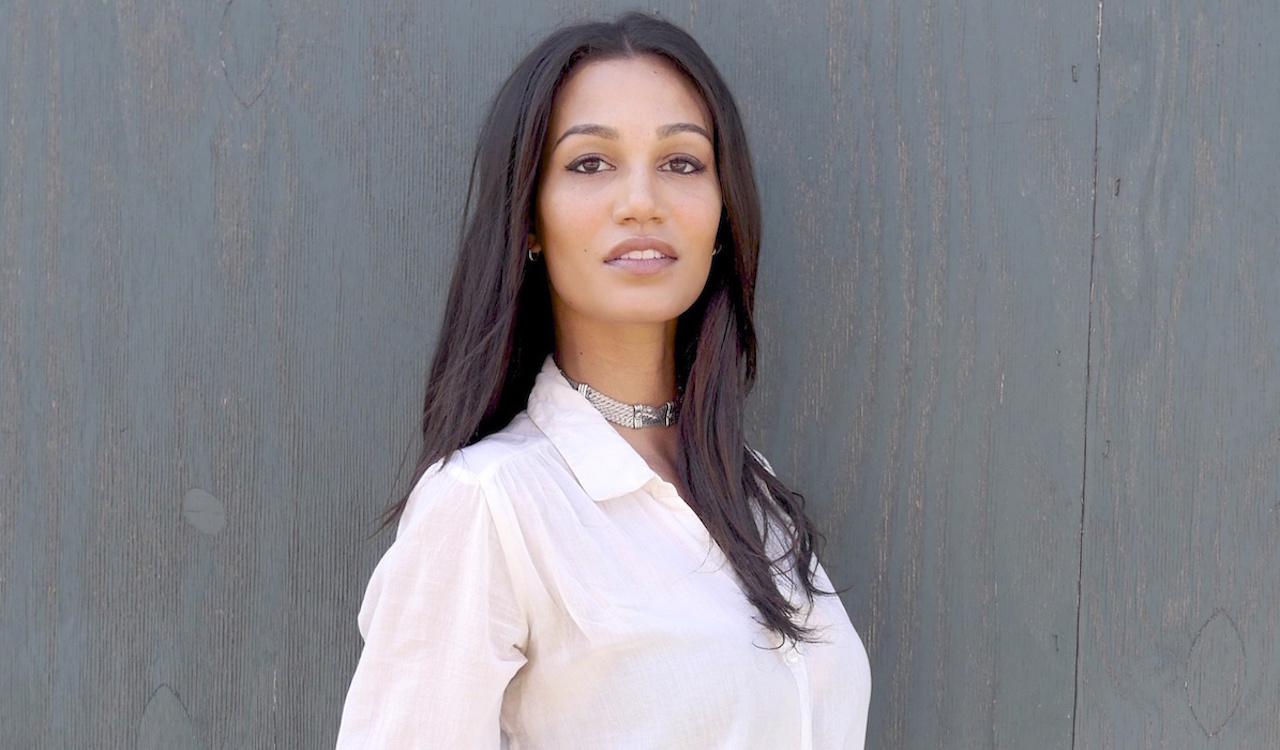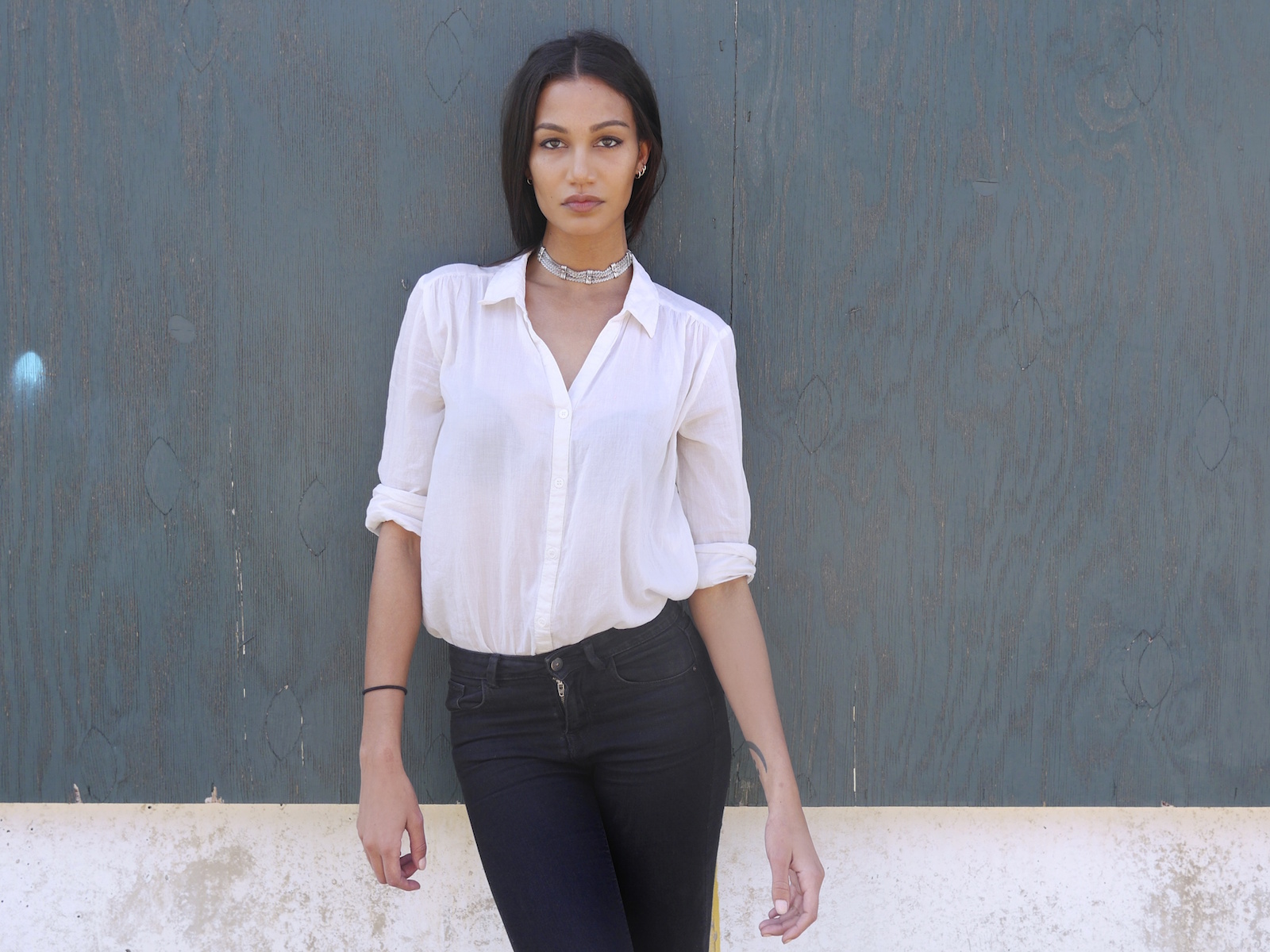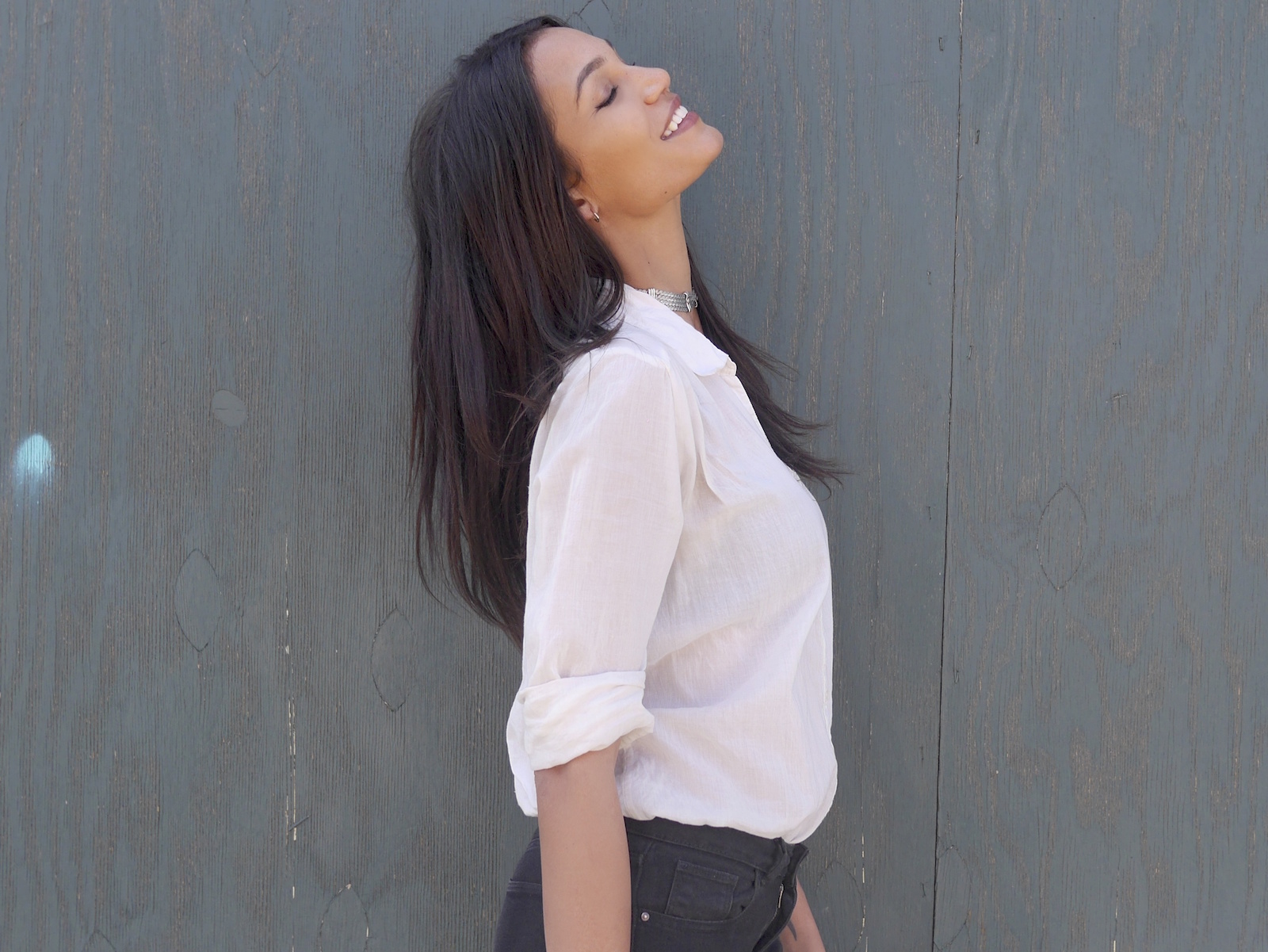
Chantal Kammermann
September 13, 2016
Rana Good is the founder of Naïra NYC. A writer for publications such as Forbes, Travel + Leisure, Coveteur, Mens Journal and others, she created her own platform celebrating women of color.
Most people are aware of the international refugee crisis, but very few have actually sprung into action to do something about it. Model Chantal Kammermann saw the extent of people’s suffering and that thousands were undertaking dangerous travel routes to find a better future. She decided that she no longer wanted to just be a silent onlooker of this problem, and traveled to Greece which was, and continues to be a key location in the refugee crisis. There she helped refugees acclimate to their new environment, connect with family members, and figure out next steps.
We spoke to her about her experience, what motivated her to help out, and what diversity means to her globally and in the city she calls home, New York City.
Job: Model and humanitarian
Heritage: Swiss and Guinean
What made you decide to work with refugees?
Chantal Kammermann: I think my background definitely motivated me, since my mom emigrated [to Switzerland] from Guinea. I really believe in freedom of movement. In my family we always discussed how lucky we were to born in a country [Switzerland] that allowed us to have so many liberties.
What really made me spring into action was a friend who had traveled to Germany to work on an art project with refugees. After I saw that, I realized I also wanted to work with refugees. I sought out more information and realized that I had a little bit of time in December. A lot of help was needed in Greece and that they were having trouble accommodating the influx of refugees. I started writing to people involved with the crisis [in Greece] and basically packed my stuff and left. I didn’t really know what to expect there.
What happened when you got to Greece?
I was staying in a family compound for vulnerable people because they were very understaffed. There were mainly elderly people, children and families on this compound. We would serve them dinner, bring them to the doctor, and help them get clothing. A lot of people were coming directly off of a boat from Turkey and their clothes were completely wet. We would provide information, welcome people, help them figure out where they would be able to go next to Europe because at that time [December 2015] the borders were still open.
I went back again to Greece in March and this time I went to Idomeni, which is a camp right by the Macedonian border with a capacity for 2000 people. However, that number turned into 15000 people when more and more people came as the borders became tighter. The camp was over capacity and a lot of people were sleeping outside. There were also lots of children and women were traveling by themselves because their spouses and fathers had left first. People were coming mainly from Syria, Afghanistan, Iraq, Algeria, and Morocco.
When you were talking to the refugees, what did they tell you about when they decided to leave their country?
First of all, I think when it comes to refugees — it makes me wonder, is it really so bad that people dream of having a better future? If your country isn’t doing well is it bad to aim for a better life? Some of us are really lucky to live in places where we can get a proper education or a job. In Syria, the war has been going on for years now and many people tried to stay. They often didn’t have a choice to leave. A little girl showed me a picture of her house in Aleppo which was completely in ruins and completely bombed out.
A lot of Syrians are middle class and tried to hold out as long as possible but had to leave for safety reasons or their kids can’t go to school — what are you supposed to do? A lot of them had spent six or seven months in Turkey to make some money so that they could continue on. Traveling from Turkey to Greece costs between $1000 – $3000 per person, and many people had earned that amount through working 12-hour days while in Turkey working in things like garment factories. So it’s not just this super easy undertaking or adventure like some people seem to think. Most people should ask themselves if they would be willing to sacrifice all of that.

How did you communicate with the refugees?
English, a few words in Arabic. I tried to find an informal translator who spoke English with me and they would help me. And people really appreciated that I came there out of my own pocket to help them.
What people and experiences stand out to you?
Loas, I got to know her and her family in Lesbos, they were from Afghanistan. I am still in touch with her via Facebook and her family made it to Germany. She recently had her first day at school which is especially touching because in Afghanistan many girls are kept out of school. When I asked her how it went she said “It’s a little bit difficult because I don’t know the language yet but I love going to school!”
Sami, a man from Syria, he’s also in Germany now and waiting to get asylum. He’s 22 and I met him with his friend Hamoud who’s 18. They were both alone and so courageous — they never complained even though the conditions were terrible. They just had so much hope to have a better future, which is something we can all learn from.
What would you say to people who are skeptical of refugees saying that they bring Islamic radicalism or are an economic burden?
When people say we’re worried about there being more Muslims and more ISIS recruits — they are fleeing from the same people! We all have basic human rights — to live in peace, to be safe, to have an education. People should just put themselves in other people’s shoes. Close your eyes and imagine that in New York a bomb would explode, what would you do? You would pack your stuff and leave. I think people don’t have compassion for people and think about how it would be if you were fleeing a war. Little children and families are risking their lives every day, but they are not scared of it because they have lost so much already.
You said that your background affected your desire to work with refugees, can you elaborate? What was it like growing up with two different cultures for you?
I really enjoyed growing up in two cultures and learning from both of them. My family also spent a lot of time in Africa and it really helped me understand that there is a different lifestyle in other countries — there was a big contrast between Guinea and Switzerland. My mom bestowed a lot of African traditions on me and my father had also spent a lot of time there. It helped me appreciate certain things that aren’t a given there, such as not having electricity 24 hours a day. It’s easy to take those kinds of things for granted. In Switzerland, you make one phone call and everything is handled, and that’s not always certain in other places in the world. I appreciate getting my education there but I am happy that I was also exposed to another culture alongside living in Switzerland.
How often did you travel to Africa?
Up until I was 14 we went every year. I also lived in Ghana and Guinea from two to six years old because my dad was working there and that’s where my parents met. My dad was working in import/export and was really well-traveled particularly in West Africa. He’s really knowledgeable about Africa to the point where I would say he’s also kind of African even though he’s white [laughs].

As a model, how do you feel about diversity on the runway?
For a while diversity was really scarce on runway, you would have a ratio of maybe 15 white models to one black one, but I think things are getting better. You can definitely feel sidelined though easily in the fashion industry but I don’t let that get me down. I’m very proud of being the product of two cultures and I’m very proud of being African. I really advocate for diversity and I’m against any type of racism. It was always a dream of mine to come to New York because it’s so multicultural — you have every culture here — Asians, African Americans, Latinos, Europeans… However when I moved here I realized that things aren’t exactly equal especially when it comes to things such as police brutality. There’s still work that needs to be done but it’s important that we educate each other.
A lot of black models have said that sometimes there aren’t the right dark make up shades for them backstage at shows and shoots, have you had a problem with that?
Sometimes I’ll get booked for a job and the makeup just isn’t the right match and you end up looking grey. A lot of times I’ll bring my own color so that there are no surprises.
What other products do you always have with you?
Coconut oil and jasmine oil because they makes my hair super shiny and beautiful, deodorant, toothpaste and a tooth brush. And I really like mascara too!
When do you feel most beautiful?
When I’ve been in the sun, on a beach somewhere. Somewhere humid which most people don’t like but I think my skin and my hair look their best. Just somewhere in the tropics with salt water and you can just look natural because you’re glowing and tanned.
Images by Nianga Niang